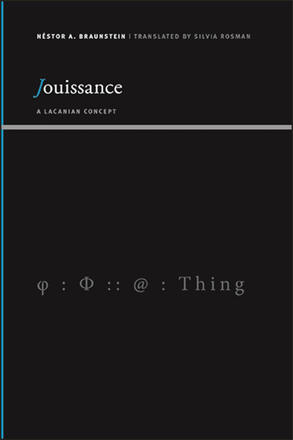
Jouissance
A Lacanian Concept
Alternative formats available from:
A comprehensive discussion of an important but elusive Lacanian concept within the field of psychoanalysis, as well as its relevance for philosophy, literature, gender, and queer studies.
Description
Whether inscribed within the context of capitalist or neoliberal logic and its imperative to "enjoy," as a critique of all forms of heteronormativity, a liberating force in a positive reading of biopolitics, the point of inflection in the ethics of psychoanalysis, or articulated in the knot of the sinthome, the concept of jouissance is either the diagnosis, response, or solution for a wide range of contemporary discontents. Why does jouissance occupy such a central place in contemporary psychoanalytic discourse? What is jouissance the name for? Originally published in Spanish in 1990, later expanded and translated into French and Portuguese, with multiple reprints in all three languages, this book addresses both theoretical and clinical applications of jouissance through a comprehensive overview of key terms in Lacan's grammar. Néstor A. Braunstein also examines it in relation to central debates within the fields of psychoanalysis, philosophy, queer theory, and literary studies to further explore the implications of Lacan's concept for contemporary thought.
Néstor A. Braunstein is an Argentine Mexican psychoanalyst, author, professor, and editor who has published extensively on psychoanalysis, philosophy, visual arts, and literature, and whose work has been translated into French and Portuguese. In English, his work appears in The Cambridge Companion to Lacan. Silvia Rosman teaches at the University of Illinois, Chicago. Her books include Being in Common: Nation, Subject, and Community in Latin American Literature and Culture.
Reviews
"…a thorough, rich account of Jacques Lacan's notion of jouissance … Positioning his text in relation to contemporary debates in literary analysis and queer theory, Braunstein presents a formulation of the ethical dimensions of jouissance that is novel and often polemical. This book will appeal to students of psychoanalysis, literary criticism, and philosophy, who may now engage with the text directly thanks to the careful translation of Silvia Rosman." — CHOICE